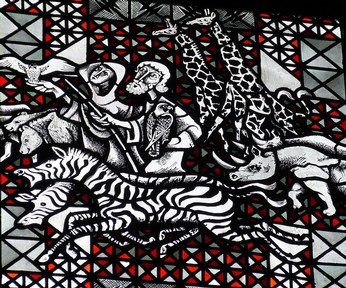Quiz Answer Key and Fun Facts
1. Which of the following forms of worship that the Israelites mimicked was originally a heathen ritual, (most notably practiced by the ancient Egyptians and early Canaanites)?
The worship of -
2. Somewhere around 922 B.C. and in accordance with 1 Kings 12, when king Jeroboam I established the northern kingdom of Israel, he built not one, but TWO golden calves for the people to worship. Where did he place them?
3. In what book of the Bible are cattle mentioned as a matter of grave concern in the very last word of the very last verse of the very last chapter?
4. Many times you may find the expression "small cattle" referred to in scripture. How does that phrase translate from ancient Hebrew into the English language?
5. Which Old Testament character made the following observation?
"Many bulls have compassed me; strong bulls of Bashan have beset me round."
6. Which ancient ruler once had a dream about seven fat cows and seven scrawny cows and what did the dream signify?
7. Where in the Bible can you read about CATTLE being instructed to praise the LORD? (Imagine that!)
8. Once, God commanded that two milk cows be utilized to transport a very important item that the Israelites had lost during a battle. The Philistines were begging for them to come and get it, so they did. What was this object that the Israelites held in such high esteem?
9. There was once a man who would be king. This wanna-be ruler killed a bunch of sheep, oxen and cows and called a bunch of his cronies together to help him celebrate, (a bit prematurely), his "kingdom". Who was this usurper to the throne of Israel, who got his come-uppance in a very unsettling way?
10. Cows and bears. Now what on earth could these two unlikely beasts and their offspring possibly have in common? Maybe the book of Isaiah, chapter 11 could give us a clue. (I'll patiently wait for you while you look it up.)
When you return, maybe you can tell me what it is predicted they will be doing at some future time. They will be - ?
Source: Author
logcrawler
This quiz was reviewed by FunTrivia editor
LeoDaVinci before going online.
Any errors found in FunTrivia content are routinely corrected through our feedback system.
